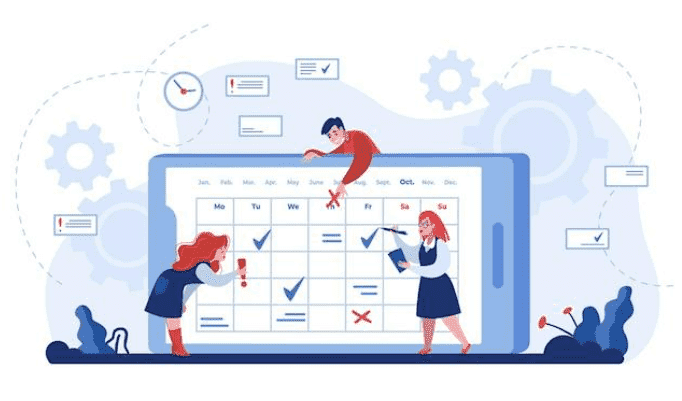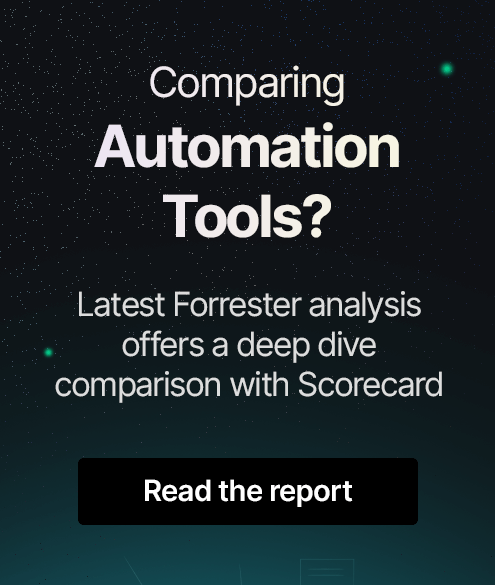Optimize Workday Testing With ACCELQ: The Smart Approach

Workday, a leading ERP system, empowers enterprises with strong human capital management capabilities. In fact, as per recent Workday data, the platform is used by around 10,000 organizations worldwide. However, as organizations embrace Workday implementations, they encounter challenges related to data quality, data mapping, data migration, maintenance, system updates, etc. When left unaddressed, these can escalate to cause service disruptions.
Therefore, optimizing Workday requires a smart approach to testing. Favorably, ACCELQ can help realize a robust Workday testing strategy. Using ACCELQ, enterprises can ensure seamless Workday implementation and harness its full potential for superior customer and employee experiences.
Challenges of Workday Testing
In essence, Workday testing provides the tools to ensure that your Workday applications align with your business needs and objectives. It focuses on:
- Ensuring system compatibility and performance
- Ensuring that every Workday module functions properly after updates and releases
- Ensuring seamless integration with internal and third-party systems
- Rigorously assessing new updates since Workday releases frequent updates
- Bolstering the overall reliability and resiliency of the platform
Leveraging Workday testing for all these facets becomes imperative, considering the fact that Workday supports a multitude of enterprise functions, including HR, planning, payroll, revenue management, procurement, talent management, supply chain management, and more.
But as critical and advantageous as Workday testing might sound, it's not without its challenges. Without alleviating these, teams can find navigating through their testing initiatives complex. Here's a rundown of some of the most pertinent Workday testing challenges:
Testing Complexity
Workday is a rather extensive and utterly complex system housing various modules and features. Of course, this implies that there is a lot of functionality to test, especially in line with the integration of a variety of systems, such as payroll, HR, and ERP systems. So, the testing team needs to ensure that Workday integrations are on par with the requisite use cases.
Another challenge transpires because organizations use custom code to extend the functionality of Workday. For this reason, the testing team must ensure they're thoroughly testing the custom code.
Limited Resources with Technical Capabilities
The lack of resources with technical capabilities can be a challenge for Workday testing for a number of reasons, including:
- The need for specialized skills: Workday testing requires specialized skills, such as knowledge of the Workday platform and specific testing methodologies.
- The time and cost of training: Training the testing team can prove time-consuming and expensive.
- The difficulty of finding qualified testers: There is a limited pool of qualified Workday testers available in the market.
Continuous Testing Makes It Difficult to Keep Pace
As mentioned above, Workday constantly releases features and functionality updates. Therefore, the testing team needs to keep up with the pace of change and ensure that they test all features thoroughly. However, this can prove challenging because the testing team needs time to be well-versed with the platform, the updates, and how they should plan the changes for quick adaptation.
Ready to start your codeless
test automation journey?
Contact Sales and discover how quickly you can get started.
How ACCELQ's Automation Can Help Optimize Workday Testing
Testing the robustness and reliability of Workday is essential to optimize its performance and ensure it supports critical business processes efficiently. Through comprehensive Workday testing with ACCELQ, businesses can confidently rely on Workday as their core HR and financial management system and unlock its full potential to drive growth and success.

It's noteworthy that manually testing Workday can lead to missing out on finer dependencies, especially in the wake of the above challenges. But ACCELQ offers a way out. ACCELQ's test automation platform allows for powerful automated testing of Workday implementations. Here's how:
- ACCELQ allows for comprehensive end-to-end testing of the Workday platform and the associated dependencies and integrations.
- Business users can leverage ACCELQ to run UI and API tests across the Workday landscape — thanks to codeless test automation capabilities.
- ACCELQ helps testers seamlessly design different test cases and implement test data management strategies to ensure that there are no rollbacks and that data flows smoothly across Workday modules.
- ACCELQ empowers businesses to implement Workday automation for effective release and update management. This frees up developers and testers from running manual test cycles.
In sum, ACCELQ allows enterprises to efficiently manage quality assurance for large digital initiatives and achieve the best ROI for their Workday investments.
Here are some benefits of ACCELQ's Workday automation:
Increased Efficiency
ACCELQ can help you significantly increase the efficiency of your Workday automated testing process. It works to:
- Increase the test coverage
- Decrease the test creation time
- Decrease the test execution time
- Ward off sophisticated Workday testing maintenance
As a result, you can free up your resources to focus on more sophisticated areas and drive continuous innovation and growth.
Improved Quality
ACCELQ assists in avoiding costly defects and ensuring that the Workday platform is performing as expected. This directly translates into realizing value from Workday insights across different enterprise functions.
Reduced Risk
ACCELQ-powered test automation helps you reduce the risk of failure in your Workday implementations. This can help protect your business from financial losses and reputational damage.
Best Practices for Implementing Workday Testing Strategies

Now that we've gone through the capabilities of ACCELQ for Workday testing, here's a rundown of the best practices that you can adopt to realize success with your Workday testing efforts:
Create a Comprehensive Testing Plan
The first step in implementing a successful Workday testing strategy is to create a comprehensive testing plan. This plan should identify:
- All the areas that require testing
- Specific tests to be performed
Use a Mix of Testing Methods
A mixed approach to testing the Workday product works well to ensure successful implementation. Why?
- For one, developers can be thorough with their assessment of all facets of Workday implementation.
- A mixed approach leaves little room for performance and functional anomalies to seep in.
- Besides, each testing method (unit testing, integration testing, system testing, and user acceptance testing) comes with its own strengths and weaknesses. So, it bodes well to have a mixed approach in place for thorough assessment.
Involve Key Stakeholders in the Testing Process
Involving key stakeholders in the testing process accrues multiple benefits. They can provide inputs on the most pertinent scenarios that need testing. Also, they can help alleviate any invalid assumptions. At the end of the day, stakeholder involvement can help ensure the relevancy, accuracy, effectiveness, and success of the Workday testing initiatives.
Test Regularly
Workday carries out planned maintenance for four hours weekly, monthly, and quarterly. Given its constantly evolving nature, there are also regular features that developers must keep track of. So, the idea should be to test regularly and fix any problems before they escalate to cause any major disruptions.
Finally, use automation to improve workday testing efficiency. Sign up for a free trial to see how ACCELQ can help with Workday automation.
Geosley Andrades
Director, Product Evangelist at ACCELQ.
Geosley is a Test Automation Evangelist and Community builder at ACCELQ. Being passionate about continuous learning, Geosley helps ACCELQ with innovative solutions to transform test automation to be simpler, more reliable, and sustainable for the real world.
Discover More
 Jira And Its Integration With ACCELQ
Jira And Its Integration With ACCELQ
Jira And Its Integration With ACCELQ
 12 Types of Mobile Testing With Examples
12 Types of Mobile Testing With Examples

































